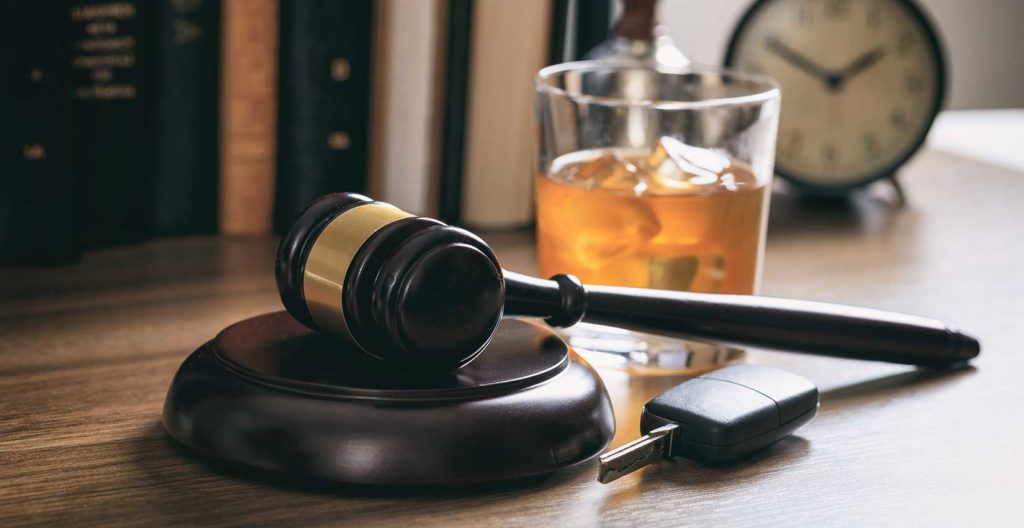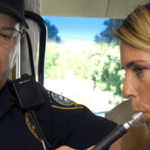Facing an Operating while Visibly Impaired (OWVI) charge in Michigan.
Operating a motor vehicle while visibly impaired is a crime in Michigan. Judges and prosecutors are tough on OWVI cases. You will need a strong, aggressive defense attorney to help resolve your case.

Michigan’s Operating While Visibly Impaired Law
An OWVI charge means that your ability to operate a motor vehicle was visibly impaired because of alcohol, drugs, and/or other intoxicants in your body. Under Michigan law, “impaired” means that your ability to operate the vehicle safely is less than that of an average daily driver. A prosecutor must prove that any impairment is noticeable.
You could be charged with OWVI if someone reports seeing you:
- swerving over the center line or side marker of the roadway
- driving on the shoulder or off-road
- driving too fast, too slowly, or at alternating speeds
- failing to stop for red lights or stop signs
- stopping for or failing to proceed on a green signal
- driving against traffic or the wrong way
- failing to stay in one lane or weaving in traffic
While the standard of proof for a “visibly impaired” charge is lower than for OWI or operating “under the influence,” the prosecutor must show that the defendant’s ability to operate was less than that of a careful driver due to the consumption of alcohol or drugs.
How is OWVI proven in Court?
The prosecutor or police can charge you with OWVI even with a bodily alcohol content (BAC) level above or below the legal limit of 0.08. Police officers can check a driver’s blood or breath to determine their BAC. Law enforcement may charge you with OWVI even without a chemical test confirming the presence of alcohol or an illicit substance. The prosecution must only prove that you were driving in an unsafe manner; they do not need to prove intoxication or a specific BAC level. Someone who only had one or two drinks could find themselves charged with OWVI, even with a BAC below the legal limit.

OWVI Penalties
First Offense OWVI
- Misdemeanor charge on your criminal record
- Maximum $300 fine
- Maximum 93 days in jail
- Up to 360 community service hours
- Four points added against your driving record
- Driver’s license restrictions for a maximum of 90 days (or 180 days if drugs were involved)
- Two yearly payments of $500 for the Driver’s Responsibility Fee
- CPL suspension or revocation
Second Offense OWVI – Defendant who received a second charge within 7 years.
- Misdemeanor charge on your criminal record
- Minimum $200 fine
- Maximum $1,000 fine
- Maximum one year in jail
- 30-90 days of community service
- Driver’s license revocation and denial for a minimum of one year (minimum of 5 years with a prior revocation)
- Loss of your license plate
- Possible loss of your vehicle (vehicle forfeiture)
- Possible vehicle immobilization for a minimum of 90 days and a maximum of 180 days
- Four points added against your driving record
- CPL suspension or revocation
Third Offense Operating While Visibly Impaired (OWVI) – Defendant who has received a third charge within their lifetime.
- Felony charge on your criminal record.
- Fines of $500-$5,000
- Probation with 30-365 days in jail or a maximum sentence of 5 years in prison
- 60-80 days of community service
- Possible loss of your vehicle (vehicle forfeiture)
- Possible vehicle immobilization for a minimum of 90 days and a maximum of 180 days
- Four points added against your driving record
- Loss of your license plate
- Loss of vehicle registration
- Loss of Driver’s License for a minimum of one year
- CPL suspension or revocation

What if you know you are “guilty”? Is it worth it to hire a top OWVI defense attorney?
Many clients do not dispute driving while visibly impaired and want to take responsibility. However, we can discover unforeseen weaknesses in the prosecutor’s case in many cases. As a result, we can obtain a favorable plea bargain, a lenient sentence, or even an outright dismissal. Judges in Michigan tend to be strict on Operating While Visibly Impaired (OWVI) cases; some judges will incarcerate defendants for a first offense. We will do everything possible and explore all avenues to achieve extraordinary results regardless of how strong the evidence is against you.
Defenses to OWVI Charges
Failure to establish impairment beyond a reasonable doubt is the most frequent defense in Operating While Visibly Impaired (OWVI) prosecutions. In contrast to an over the legal limit situation, “impairment” is an intrinsically ambiguous standard. This vagueness offers grounds for claiming that the prosecutor failed to provide sufficient evidence. Defense attorneys with a reputation for pleading their clients guilty have little hope of persuading the prosecution to dismiss or reduce OWVI charges because the prosecutor knows they are not trial lawyers. The criminal trial attorneys with LEWIS & DICKSTEIN, P.L.L.C. are well-respected and credible threats to the prosecutor’s case. Their reputations as aggressive and successful defense lawyers give their clients the necessary advantage in Court to obtain extraordinary outcomes.

OWVI Defense Attorney
Contact an OWVI defense lawyer with advanced legal and scientific knowledge and who knows the Michigan court system, Michigan judges, and Michigan prosecutors. The defense attorneys with LEWIS & DICKSTEIN, P.L.L.C. are aggressive, resourceful, creative, and passionate about our clients and their cases. We will turn over every rock and explore every loophole to find a way to get an advantage for our clients charged with Operating While Visibly Impaired.
Call us today at (248) 263-6800 for a free consultation or complete an online Request for Assistance Form. We will contact you promptly and find a way to help you.













